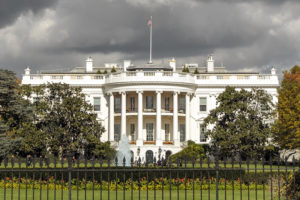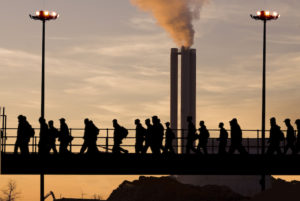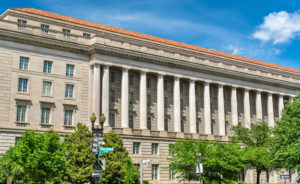Regulating Immigration in a Deregulatory Administration
The Trump Administration’s measures to restrict immigration do not square with its push to deregulate.
Executive Power and the CFPB
D.C. Circuit weighs constitutionality of the consumer financial watchdog’s organizational structure.
Participatory Rulemaking in China Needs Even More Effort
Recent revisions to China’s administrative regulations will not guarantee effective public participation.
Regulating by Way of Straws
California legislator proposes regulating straw use in certain restaurants to reduce plastic waste.
For Smokers Trying to Quit, Information Could Be Key
Scholar argues that recent FDA regulations may keep smokers in the dark about e-cigarettes.
Regulating Religious Accommodation at Work
Federal appeals court weighs employers’ obligation to accommodate employees’ religious practices.
Addressing the International Legal Challenges of Genetic Engineering
In keynote address, Gary Marchant discusses the transnational implications of genetic engineering.
Inspection Practices of the Past and Future
When considering future inspection practices, regulators should heed lessons from history.
The Transgender Military Personnel Fight Continues Amid Uncertainty
President’s memo favoring a ban of transgender service members raises new questions for future litigation.
Should India’s Supreme Court Enforce Regulations?
India’s Supreme Court enforces public interest regulations, but it risks political harm in doing so.
The Guidance Racket
Despite attacks from conservatives, guidance documents help agencies and regulated firms comply with the law.
Tightening Service and Emotional Support Animal Regulations
Debate ignites over regulating service and support animals on airplanes and in public accommodations.












